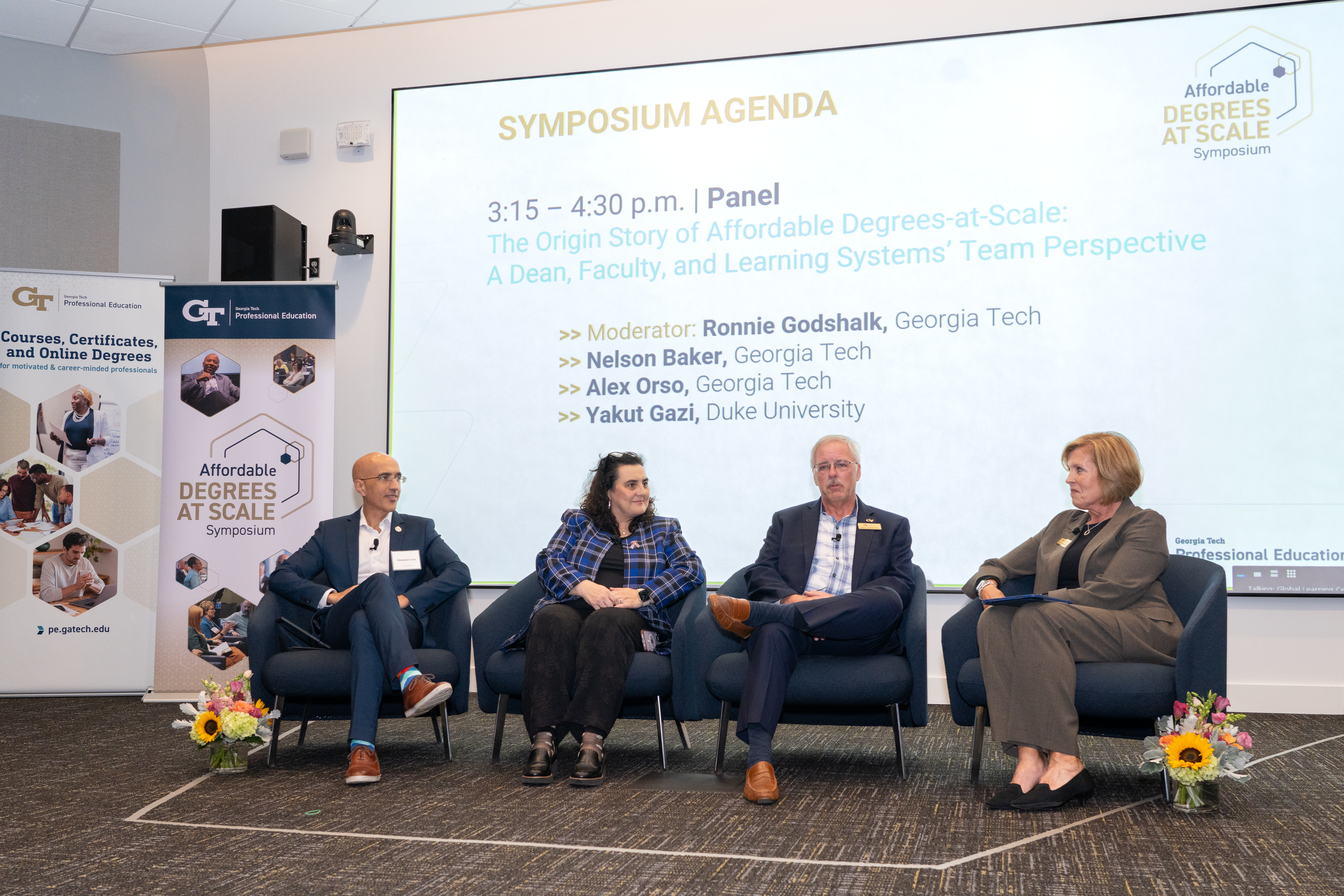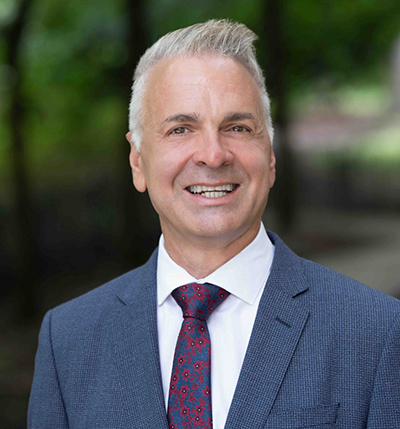
Learning is not confined to a single stage of life and at this year's symposium, thought leaders and professionals from multiple fields will explore how the field of lifetime learning is shaping the future of education. Sessions focusing on value, affordability, alternative credentials, and research will offer fresh ideas and actionable strategies for supporting learners from kindergarten to post-retirement.
As individual, governmental, and societal expectations for education continue to evolve, institutions — from early childhood to professional development — are being asked to make learning more accessible, affordable, and impactful.
This dynamic reframing has spurred the emergence of lifetime learning as a strategic, integrative field in higher education — one that Georgia Tech is uniquely poised to lead through the new College of Lifetime Learning.
The College will explore this theme in the 2025 Lifetime Learning Symposium. Broadening from the previous tight focus on affordability and scale, the event will be a more inclusive look at the full lens of lifetime learning and ongoing innovations in the burgeoning field.
“Over the years, this event has been a source of meaningful, candid conversations that give our attendees a chance to learn, ask questions, and return to their home institutions with actionable ideas as they and their teams navigate the shifting landscape of higher education,” says the College of Lifetime Learning's Associate Dean of Learning Systems Ronnie Godshalk, who also serves as a symposium co-chair.
“This year, we are building on that momentum with more sessions and topics, and we are inviting attendees to think bigger about our roles,” she explains. “We are focusing not just on access and affordability, but also on how the field of lifetime learning can serve as a guiding framework for learning and the future of education.”

The symposium will feature a keynote address by the inaugural dean of the College of Lifetime Learning, William Gaudelli, whose presentation will explore the emergence of lifetime learning as a strategic, interdisciplinary field.
“Whether it's expanding opportunities for rural computer science education in K-12, creating career-sustaining pathways through credentials and affordable degrees, or generating research to optimize learning in these and other forums, this gathering is where the future of learning is taking shape,” Gaudelli says.
In addition to Gaudelli's keynote, this year’s event reflects the full arc of learner needs from kindergarten through post-retirement, and is structured around four tracks:
- The value proposition of lifetime learning: Focusing on return on investment, how programmatic outcomes are measured, and their impacts on institutions and society
- Affordable at-scale programs: Establishing sustainable at-scale programs through the use of technology to reach large student populations
- Alternative credentials: Exploring the challenges and opportunities in credentialing while accounting for widely dispersed, non-traditional learning, as well as nonlinear learning within traditional institutions
- Research in impactful online programs: Codifying and testing our understanding through experimentation, including how we maximize the benefits of a connected learning ecosystem that focuses less on broadcasting knowledge and more on how it is received and incorporated into learners’ lives
Participants will be able to choose from different sessions and panels throughout the conference, allowing them to curate a personal agenda most relevant to their fields and work.
“Having a wide variety of offerings allows attendees to shape their own journey through the symposium,” Godshalk says. “By focusing on the four themes, participants can investigate topics that are meaningful to their institutions today while learning from others that are on the cutting edge of changing the higher education landscape of the future.”
The symposium also reflects Georgia Tech’s broader commitment to ensuring education opportunities exist across one’s lifetime.
“It is exciting to see the Lifetime Learning Symposium bring various stakeholders together to strengthen learning pathways across sectors,” says Lizanne DeStefano, executive director of Georgia Tech’s Center for Education Integrating Science, Math and Computing. “Georgia Tech’s Strategic Plan frames lifetime learning as a continuum that begins well before post-secondary education. Including K–12 perspectives in this framework acknowledges that early exposure to career pathways and foundational skill development can influence long-term educational and workforce outcomes."
Gaudelli agrees on the importance of learning throughout one's lifetime.
“Our aim at the college is to amplify learning as a lifelong pursuit — not just a time-based period of one's life dedicated to learning,” he explains. “That’s an outdated model of an industrial era. We see learning at every point in people's lives and aim to integrate learning science, technology, and policy into accessible, scalable, and deeply relevant offerings that address the needs of all learners in timely and meaningful ways.
“The College of Lifetime Learning is a foundational part of that future. It’s a future in which learners of all ages and stages can thrive, a future where everyone is a learner seeking pathways of personal meaning and improved career strategy,” he says.
The symposium will be held Oct. 6-8, 2025, at Georgia Tech’s Global Learning Center. Registration is now open, with early-bird discounts in effect through Sept. 15.